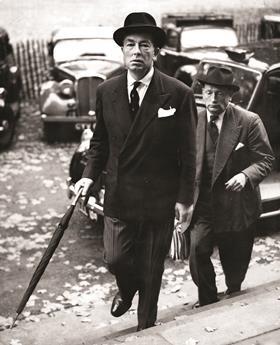Prosecutorial Discretion in International Criminal Justice
Cale Davis
£90, Edward Elgar Publishing
★★★★✩
In a famous speech to parliament in 1951, redoubtable Labour attorney general Sir Hartley Shawcross (pictured) defined what has become known as the Shawcross Principle regarding his office’s functions. In part, he spoke about the attorney general’s discretion to determine when to pursue prosecution.

‘The truth is, of course, that the exercise of a discretion in a quasi-judicial way as to whether or when I must take steps to enforce the criminal law is exactly one of the duties of the office of the Attorney-General … It has never been the rule in this country – I hope it never will be – that suspected criminal offences must automatically be the subject of prosecution.’
Shawcross was chief prosecutor at the Nuremberg trials and an important figure in the development of international criminal law. His Principle seems to have an important place in that jurisdiction, just as much as in English law.
Here, Davis analyses prosecutorial discretion in international criminal justice, to understand how the discretion is exercised in various judicial and quasi-judicial functions; which situations to investigate; which crimes to charge; which witnesses to call; whether to negotiate pleas; and whether to appeal. He argues that prosecutorial decision-making in all these areas has historically been made away from public view and with little explanation. His primary source of material is a series of interviews with various current and former senior prosecutors in different international courts, giving a first-hand account of the kind of issues which are in play.
What comes across in the work is that the discretion given to prosecutors is remarkably wide. The interview approach is quite effective in showing factors that are deemed relevant. However, one is left with the impression that their discretion, even in as fundamental an area as which cases to pursue – which, as Davis recognises, can have massive consequences for the accused – is largely undefined. It depends, for example, as much on what can be achieved politically – such as whether the state where the accused claims citizenship is likely to cooperate – as any international equivalent of English law’s ‘public interest criterion’.
A fascinating insight, of particular interest for those keen on international politics.
James E Hurford is a solicitor at the Government Legal Department, London































No comments yet